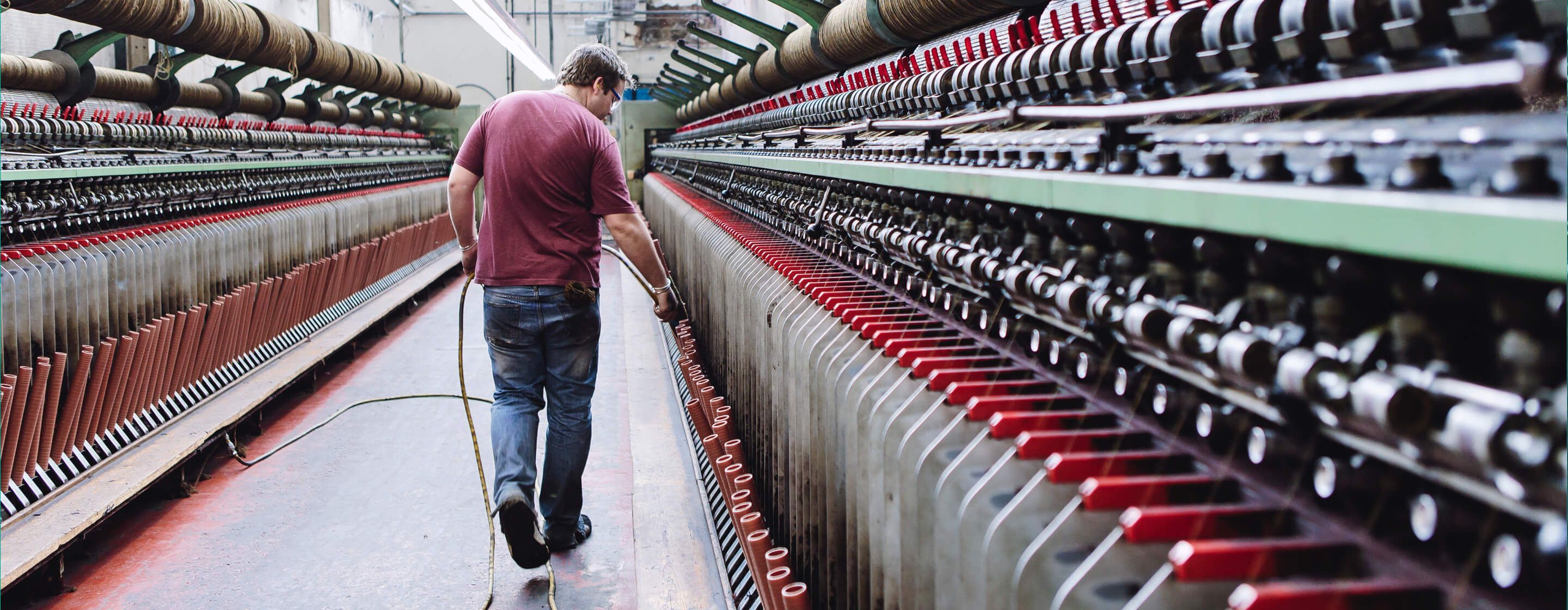Function at peak levels with effective water treatment
Textiles are in high demand — plants around the world produce a steady output of natural, synthetic, and nonwoven fabrics daily. The production of fabrics not only requires clean water, but also comprehensive wastewater treatment to recover and recycle water and valuable compounds, such as salt and dye.
DuPont Water Solutions brings innovative and effective water and wastewater management to the textile industry to help its plants and facilities operate at peak levels. We can help reduce problematic solids, clean wastewater, and facilitate dye and salt removal or recovery with ultrafiltration (UF), nanofiltration (NF), and reverse osmosis (RO) technologies.
Textile subindustries and applications
Preventing water issues that slow operation
Cooling tower water can present a number of operational challenges for textile operations. If not properly treated, the water that flows through these towers can cause scaling, corrosion, contamination, and fouling issues.
Our industry-leading knowledge and local expertise in cooling water treatment can help you define a strategic solution that saves money, prevents problems, and helps better manage overall water resources.
Our solutions address:
- Cooling tower blowdown recycle.
- Suspended solids removal.
- Softening.
- Minimal liquid discharge (MLD).
Lowering costs for production
Water-quality requirements for boiler feedwater depend primarily on the operating pressure and type of boiler. This can vary from simple soft water for low-pressure boilers to demineralized, or even polished, makeup water for high-pressure boilers. The water treatment technology to produce this water can vary greatly.
We provide an expansive array of applications to help lower costs and increase production, including ultrafiltration (UF) pretreatment, industrial softening demineralization, and the polishing of demineralized water for more stringent applications.
Our solutions include:
- Suspended solids removal.
- Industrial softening.
- Makeup water polishing.
- Condensate polishing.
Turning waste into a resource
An increase in global and local regulations means that textile plants must become more environmentally responsible, particularly in the development of sustainable waste solutions and residuals management. We offer proven technologies — for processes from aromatic and phenolic compound removal to plating metals removal — that facilitate waste and process stream treatment.
Our solutions include:
- Suspended solids removal.
- Soluble contaminant removal.
- Organics removal (BOD/COD/TOC).
- Selective contaminant removal.
- Minimal liquid discharge (MLD).
- Wastewater treatment and reuse.
Treating dye water effectively
In the textile industry, water used for processing contains dyeing compounds that can be too diluted for direct reuse or cannot be reused at all, due to a mix of colors and other impurities in the water. Because dyeing processes take place at elevated temperatures — 90°C in the case of wool and polyester — the treatment of textile wastewater requires high-temperature technology. Our proven filtration technologies help textile plants treat textile wastewater so that it can be recycled for operational efficiency.
-
Cooling Tower Water
Preventing water issues that slow operation
Cooling tower water can present a number of operational challenges for textile operations. If not properly treated, the water that flows through these towers can cause scaling, corrosion, contamination, and fouling issues.
Our industry-leading knowledge and local expertise in cooling water treatment can help you define a strategic solution that saves money, prevents problems, and helps better manage overall water resources.
Our solutions address:
- Cooling tower blowdown recycle.
- Suspended solids removal.
- Softening.
- Minimal liquid discharge (MLD).
-
Industrial Boiler Feedwater
Lowering costs for production
Water-quality requirements for boiler feedwater depend primarily on the operating pressure and type of boiler. This can vary from simple soft water for low-pressure boilers to demineralized, or even polished, makeup water for high-pressure boilers. The water treatment technology to produce this water can vary greatly.
We provide an expansive array of applications to help lower costs and increase production, including ultrafiltration (UF) pretreatment, industrial softening demineralization, and the polishing of demineralized water for more stringent applications.
Our solutions include:
- Suspended solids removal.
- Industrial softening.
- Makeup water polishing.
- Condensate polishing.
- Suspended solids removal.
-
Industrial Wastewater
Turning waste into a resource
An increase in global and local regulations means that textile plants must become more environmentally responsible, particularly in the development of sustainable waste solutions and residuals management. We offer proven technologies — for processes from aromatic and phenolic compound removal to plating metals removal — that facilitate waste and process stream treatment.
Our solutions include:
- Suspended solids removal.
- Soluble contaminant removal.
- Organics removal (BOD/COD/TOC).
- Selective contaminant removal.
- Minimal liquid discharge (MLD).
- Wastewater treatment and reuse.
-
Textile Processing
Treating dye water effectively
In the textile industry, water used for processing contains dyeing compounds that can be too diluted for direct reuse or cannot be reused at all, due to a mix of colors and other impurities in the water. Because dyeing processes take place at elevated temperatures — 90°C in the case of wool and polyester — the treatment of textile wastewater requires high-temperature technology. Our proven filtration technologies help textile plants treat textile wastewater so that it can be recycled for operational efficiency.
Find products for the textile industry
View a list of products suitable for cooling tower water, industrial boiler feedwater, industrial wastewater, and textile processing.
Select Textile references around the globe
Related resources
See what’s possible
Ask how we can help textile plants operate at peak levels with effective water management.
